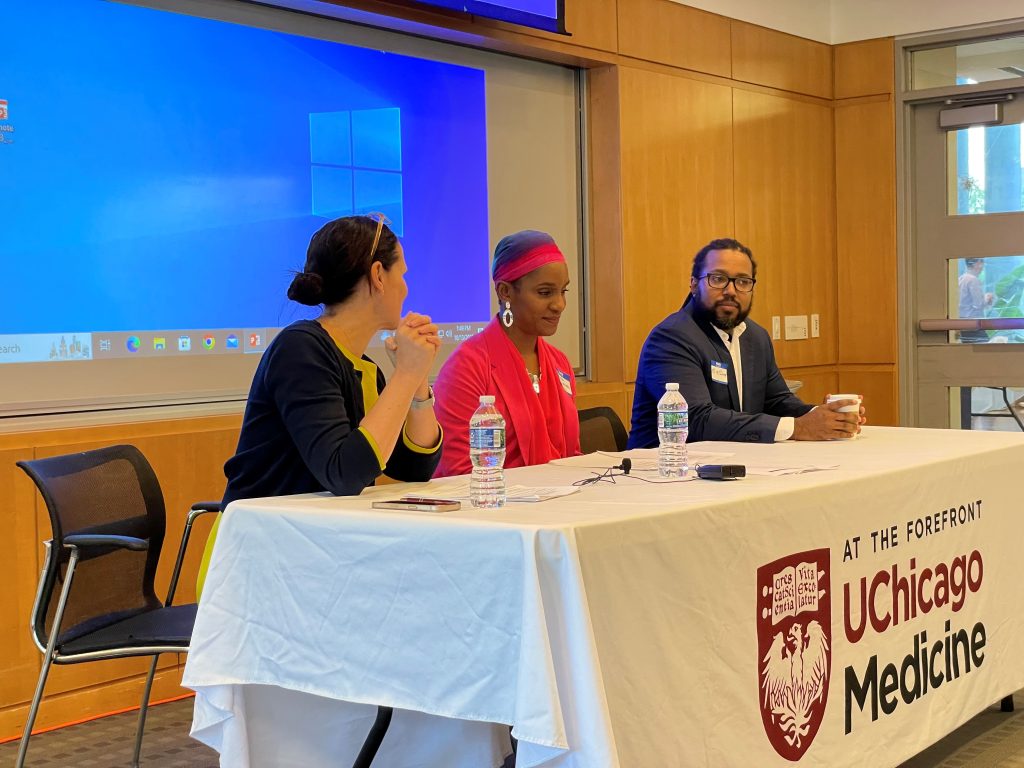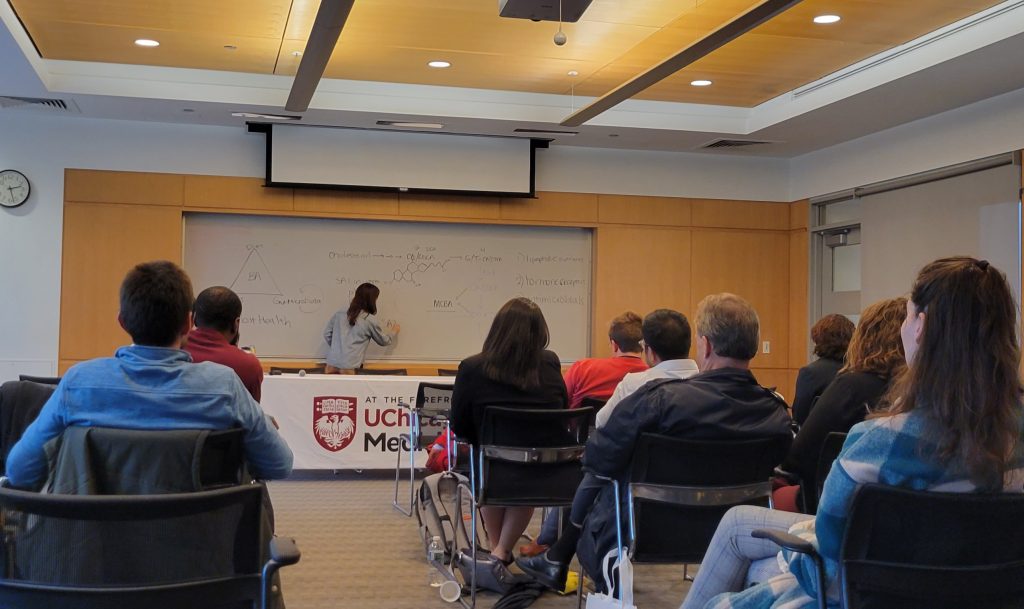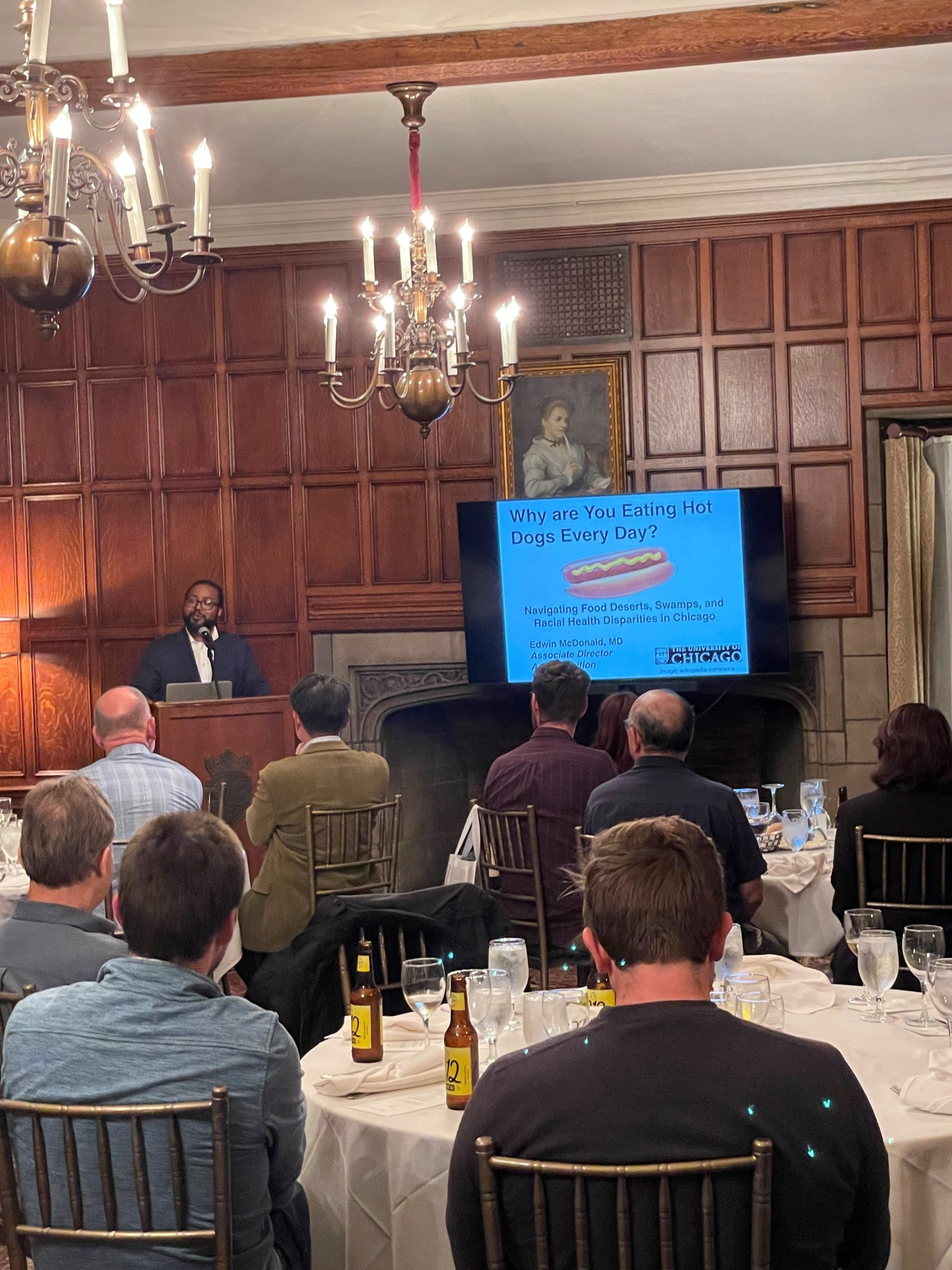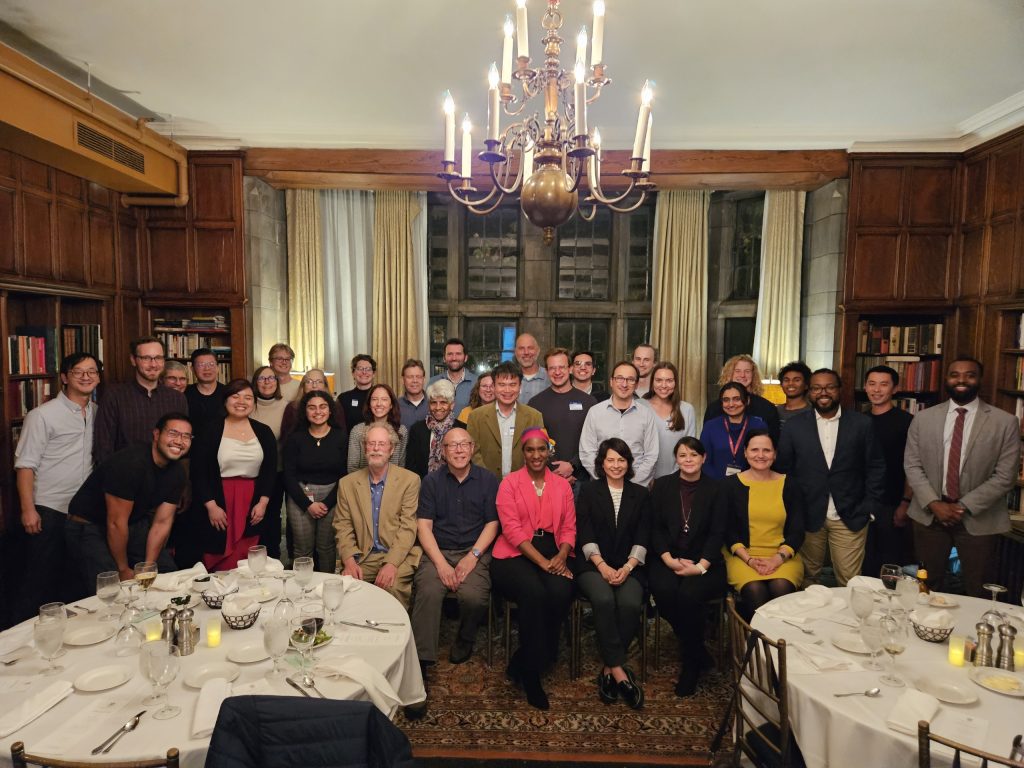
This weekend, The University of Wisconsin-Madison’s “Metabolism and Nutrition” T32 program and the University of Chicago’s “Digestive Health and Diseases” T32 training program joined forces to hold the first ever Joint T32 Retreat. The two leading institutions, renowned for their contributions to the fields of health, nutrition, and sciences, convened at the University of Chicago’s campus.
The keynote address, “Effective Mentorship in STEMM: What’s Cultural Diversity Got To Do With It?”, was delivered by Dr. Angela Byars-Winston, PhD, from UW-Madison’s Department of Medicine, and Chair of the Institute for Diversity Science.
Throughout the day, the program featured a series of informational presentations. Dr. Sonia Kupfer, MD, Associate Professor of Medicine at the University of Chicago, explored “Modeling Host-Environment Interactions across Diverse Individuals.” Trainees from both institutions showcased their research, leading up to a panel discussion on Diversity, Equity, and Inclusion-related topics.
The evening saw a captivating exploration of career development skills through mini-talks and vignettes by experts Manjing Zhang, PhD, Scientific Analyst at Morrison Foerster, and Vanessa Leone, PhD, Assistant Professor of Animal and Dairy Sciences at UW-Madison. The day concluded with a reception and social hour, followed by a science keynote by U Chicago’s Dr. Edwin McDonald entitled “Why are you eating hot dogs every day?” which navigated food swamps, food deserts, and health disparities.
On Saturday, the event continued with a poster session, followed by fascinating research presentations. Andrew Hryckowian, PhD, Assistant Professor of Medicine and Medical Microbiology and Immunology at UW-Madison, presented “A short-chain fatty acid-centric view of Clostridioides difficile pathogenesis.”
The poster session allowed attendees to interact with the presenters, promoting knowledgeable discussions and collaboration. A panel and audience discussion, led by Kristina Martinez-Guryn, PhD, Associate Professor at Midwestern University, and Wallace Liu, PhD from Gilead Sciences, explored various career paths such as post-doctoral opportunities. The importance of a proper work-life balance was also discussed.
The retreat reached its height with “Chalk Talks” from two trainees from each T32 program, addressing the larger impact of their research and its significance.



The Joint Retreat received generous funding from the Division of Gastroenterology, Hepatology, and Nutrition at the University of Chicago, the Morgridge Institute for Research, and the School of Medicine and Public Health. The collaboration between the University of Chicago and the University of Wisconsin-Madison laid the groundwork for future advancements in the fields of digestive health, metabolism, and nutrition.
